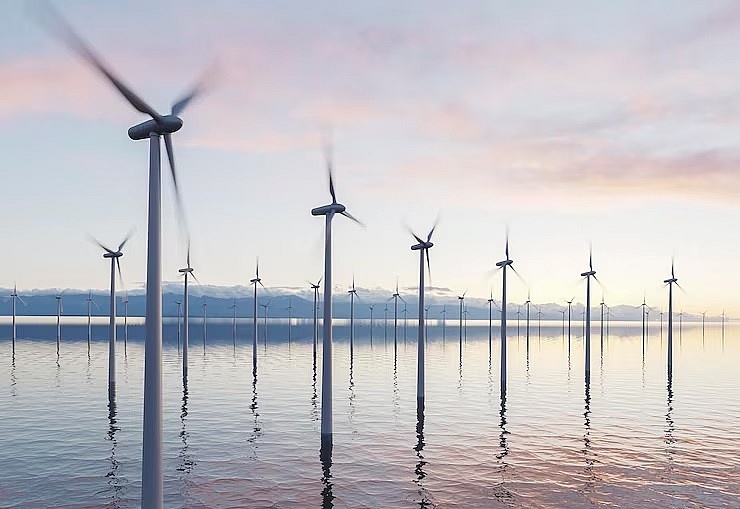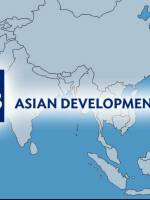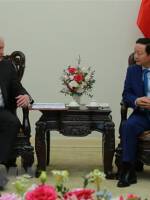
Prime Minister Pham Minh Chinh last week required authorities at all levels to boost the implementation of the nation’s new Vietnam Resource Mobilisation Plan (RMP), which will enable the implementation of the Just Energy Transition Partnership (JETP) announced last December by the European Commission (EC).
Vietnam has been required by the EC to develop and publish as soon as possible an RMP by November 2023 to identify the new investment requirements and opportunities – for the development and implementation of wind, solar, transmission, energy efficiency, storage, electric vehicles, training, retraining and vocational support for employment among others – and measures to facilitate the deployment of support and overcome barriers to investment, to deliver Vietnam’s just energy transition.
PM Chinh stated, “We must strongly carry out the partnership and soon formulate the RMP, while proactively working with the International Partners Group (IPG) and the Glasgow Financial Alliance for Net Zero (GFANZ) and other stakeholders about their support for Vietnam to implement net-zero emissions.”
Last December, the EC announced that leaders from Vietnam and the IPG, including the EU, the UK, France, Germany, the US, Italy, Canada, Japan, Norway, and Denmark had agreed on the JETP.
“The partnership will support Vietnam to deliver on its ambitious net-zero 2050 goal, accelerate the peaking of its greenhouse gas emissions and transition away from fossil fuels to clean energy,” said an EC press release. “The JETP will mobilise an initial $15.5 billion of public and private finance over the next three to five years to support Vietnam’s green transition.”
Initial contributions to the Vietnam JETP include $7.75 billion in pledges from the IPG together with the Asian Development Bank and the International Finance Corporation. This is supported by a commitment to work to mobilise and facilitate a matching $7.75 billion in private investment from an initial set of private financial institutions coordinated by the GFANZ, including Bank of America, Citi, Deutsche Bank, HSBC, Macquarie Group, Mizuho Financial Group, MUFG, Prudential, Shinhan Financial Group, SMBC Group, and Standard Chartered.
The partnership will assist Vietnam in working towards some new targets, including advancing the projected peaking date for all greenhouse gases in Vietnam from 2035 to 2030; reducing peak annual power sector emissions by up to 30 per cent, from 240 to 170 megatonnes, and bringing forward the peaking date by five years to 2030; limiting Vietnam’s peak coal capacity to 30.2GW down from a current planning figure of 37GW; and accelerating the adoption of renewables so that renewable energy accounts for at least 47 per cent of electricity generation by 2030, up from the current planned generation share of 36 per cent.
At a meeting with PM Chinh in Hanoi over a week ago, US Treasury Secretary Janet Yellen said that the US is committed to mobilising support for Vietnam’s adoption of renewable energy as part of the JETP.
“I welcome your leadership on the clean energy transition. Along with the IPG colleagues, the UK, and the EU, I was very encouraged by the announcement of the JETP, which is expected to mobilise over $15 billion towards your energy efforts,” Yellen said.
Ramla Khalidi, resident representative in Vietnam at the United Nations Development Programme (UNDP), said, “In the next 3-5 years, the country needs to accelerate preparation for a package of public instruments to de-risking investments in renewable energies and design a just and feasible process to phase out coals in both state own enterprises and foreign invested coal power plants.”
Currently, the UNDP is initiating assessment on the impact of phasing-out coal power and energy transition in Vietnam and defining what these processes would specifically mean for the nation.
“This will inform further our ongoing assessment of the total socioeconomic impacts of the Energy Master Plan to reach net-zero by 2050,” Khalidi said.
In 2023, the UNDP stands ready to support the Vietnamese government in the detailed formulation and implementation of the RMP. This includes the UNDP’s technical assistance services to the governments in green transition and Nationally Appropriate Mitigation Action projects, which can help Vietnam identify cost-effective de-risking public instruments to promote and scale up private sectors investments in the plan.
“We are also exploring the experiences of other countries in the establishment of a climate bank that can support the mobilisation of international and domestic resources for climate action,” Khalidi said.
Thanh Thu




